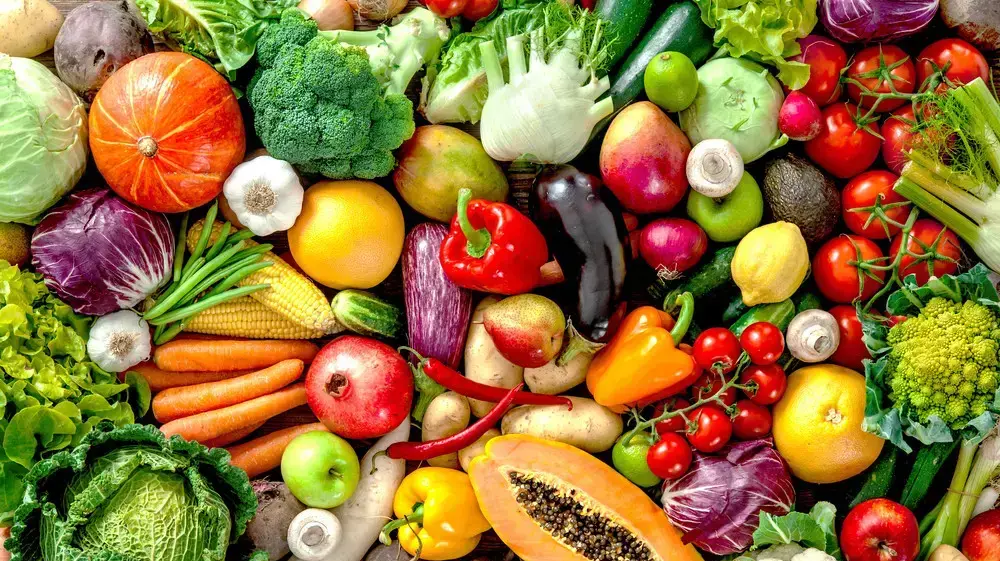Farmers spray a strawberry field with pesticides (Photo: ShutterStock)
The State Comptroller's report was published, and its bottom line cannot be eradicated: We spray our food a lot, much more than European countries, in a way that could harm our health and the environment as a whole.
In addition to the severe damage caused to animals and diverse ecosystems due to the extensive use of these substances, many health damages are linked to them: various cancers, cognitive and neurological diseases such as Alzheimer's and Parkinson's, developmental defects and impaired fertility. The health damage is not limited to farmers who are directly exposed to pesticides: the general public may be harmed by excess use and high levels of pesticides in the food they consume. So what do you do with this salad? Enforce the laws, reduce permits and encourage research and innovation in the field, but first of all – know the data.
Israelis are more exterminating
Before making a salad, let's also put things in order: pesticides are an important link in the modern food supply chain - protecting crops from various pests, thus enabling agricultural produce on a modern scale. However, given the dangers these substances bring, it is necessary to monitor their dosages in everyone's food.
In this context, our situation is dire: the use of pesticides in Israel is among the most extensive in the world. A follow-up audit of the use of pesticides in vegetables and fruits recently published by the State Comptroller shows that relative to EU countries, Israel consumes up to 10 times more pesticides than the volume of agricultural produce. In addition, according to a 2021 report by the Food and Agriculture Organization (FAO), Israel ranks ninth in the world in pesticide use relative to agricultural areas, ahead of only developing countries such as China and Ecuador.
The Ministry of Health's report on monitoring pesticide residues in food for 2020-2019 also raises worrying findings: it demonstrates not only the widespread use of pesticides in Israel, but also the upward trend over the years in abnormal pesticide residues in food to which the general public is exposed; The findings indicate abnormal levels of residues of these substances in food in 18.8 percent of all samples collected, a significant increase of 7 percent from 2016. In addition, 49 percent of the deviating findings were detected with the use of a pesticide defined as prohibited in that crop.
In addition, the list of 440 active ingredients approved for use in Israel includes 113 substances that are banned for use in Europe, and which were found to have significant irregularities in our food. For example: chlorpyrifos and carbendases - which have the potential to impair fetal development and fertility; bipantherin - suspected carcinogen; and other substances banned due to the significant damage to the environment, such as imidacloprid, which has been shown to severely harm bees.
The use of pesticides in Israel is among the most extensive in the world (Photo: ShutterStock)
Today's spraying
The Ministry of Agriculture is the body responsible for licensing pesticides in Israel, and it formulates the guidelines for their implementation and guides farmers in their proper use. The Ministry of Agriculture bases its decisions on the approval of new preparations with the recommendations of an interministerial committee composed of representatives from the Ministries of Agriculture, Health, Environmental Protection and the Ministry of Labor and Social Affairs, whose recommendations are based on data from Israel and around the world. The same committee also re-evaluates pesticides approved for agricultural use in Israel, and forwards its recommendations to the Ministry of Agriculture, which discloses its decisions on the subject to public scrutiny.
In parallel with the activities of the Ministry of Agriculture, the Ministry of Health is working to reduce the exposure of the Israeli public to pesticides and to reduce the scope of their use. As part of this activity, within the framework of the Arrangements Law, European legislation for pesticide residues and food contaminants was recently adopted. This move is intended to protect public health while at the same time promoting the removal of barriers to trade and import of food into Israel.
The spray of tomorrow
Despite the adoption of European legislation, due to various considerations of the Ministry of Agriculture, agricultural produce that includes fresh fruits and vegetables was excluded from the decision. But in light of the worrying trend of increasing pesticide residues in food, there is no doubt that European legislation should also be applied to fresh agricultural produce. In addition, the use of pesticides banned in the EU, with an emphasis on those found to have health consequences, should be banned, and active action should be taken to guide and accompany Israeli farmers.
At the same time, in order to ensure thriving agriculture and rich agricultural produce, the Ministry of Agriculture should promote research and innovation in the field of pesticides and implement available solutions such as increased pest monitoring, integrated and precise agriculture (making agricultural decisions at the tree level instead of at the plot level, to prevent overuse of pesticides) and available genetic engineering tools that can reduce pesticide use. Such an investment will not only protect public health and the environment in the near term, but will also place Israel at the forefront of innovation in the agricultural sector, and will return itself tens of times in the long run.
Dr. Jonathan Dar is a former Mishek Fellow at the National Food Service at the Ministry of Health.
The article was prepared by Angle - the news agency of the Israeli Society of Ecology and Environmental Sciences
- health
- nutrition and diet
Tags
- Pesticides
- fruit
- Vegetables

